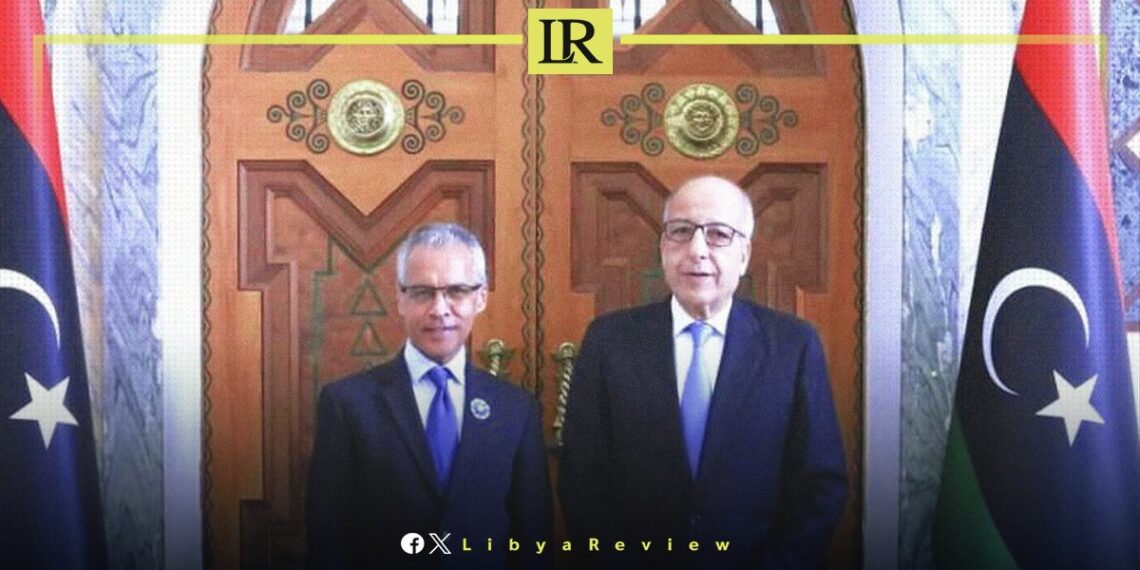The Governor of the Central Bank of Libya (CBL), Al Siddik Al Kabir, held a pivotal discussion with the French Ambassador to Libya, Mostafa Mihraje.
The meeting focused on developing and supporting the bilateral relations between the Libyan and French central banks, particularly in the areas of anti-money laundering, counter-terrorism financing, risk management, and cybersecurity enhancements.
Governor Al Kabir highlighted the importance of strengthening financial security frameworks to combat financial crimes and enhance digital security across banking sectors. The discussions also touched upon the upcoming economic forum scheduled to be held in Paris in July.
The forum is expected to further cement the cooperative efforts between the two nations in tackling financial crimes and enhancing economic security.
This meeting marks a crucial step in bolstering the relationship between the two central banks, promising a future of enhanced cooperation in financial regulation and security.
Last month, Mihraje, met with Mohamed Takala, the Head of the Libyan High Council of State, to discuss resuming the political process and bilateral cooperation between the two countries. This meeting follows the resignation of the UN envoy, highlighting a pivotal moment for Libya’s ongoing political dialogue.
During their discussion, Ambassador Mihraje emphasized the importance of continuing the political momentum in Libya, aiming to stabilize the region and strengthen the ties between France and Libya. Both officials expressed their commitment to enhancing collaboration in various sectors and supporting Libya’s path towards a peaceful and democratic resolution.
Earlier, the United Nations envoy to Libya, Abdoulaye Bathily, held talks with Mostafa Mihraj, the French Ambassador to Libya, focusing on the country’s current political and security dynamics.
Their meeting aimed at evaluating the prospects for reinvigorating Libya’s political process, which is presently mired in stagnation. The dialogue also covered the broader regional situation and its potential repercussions on Libya, emphasizing the urgency of navigating through the political impasse.


